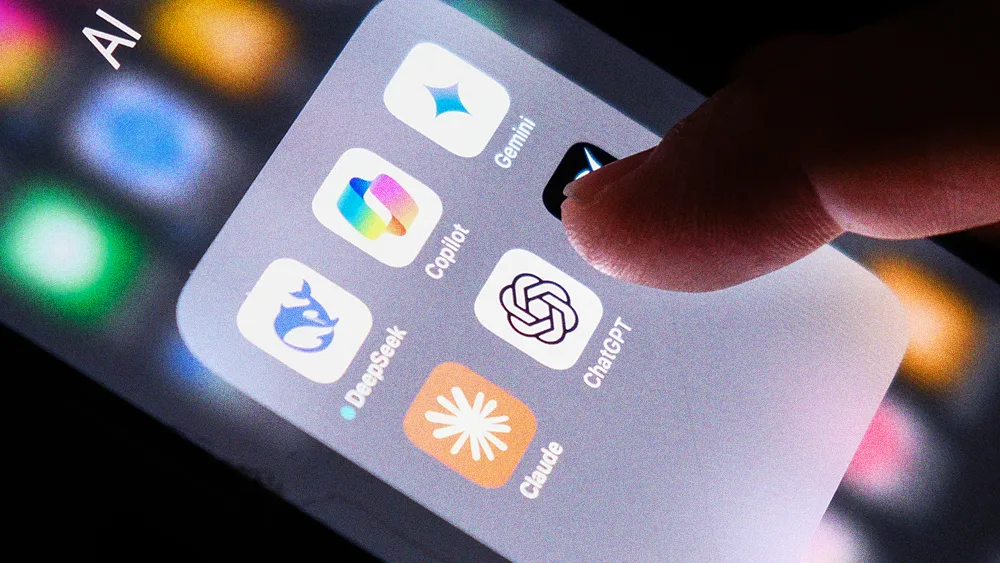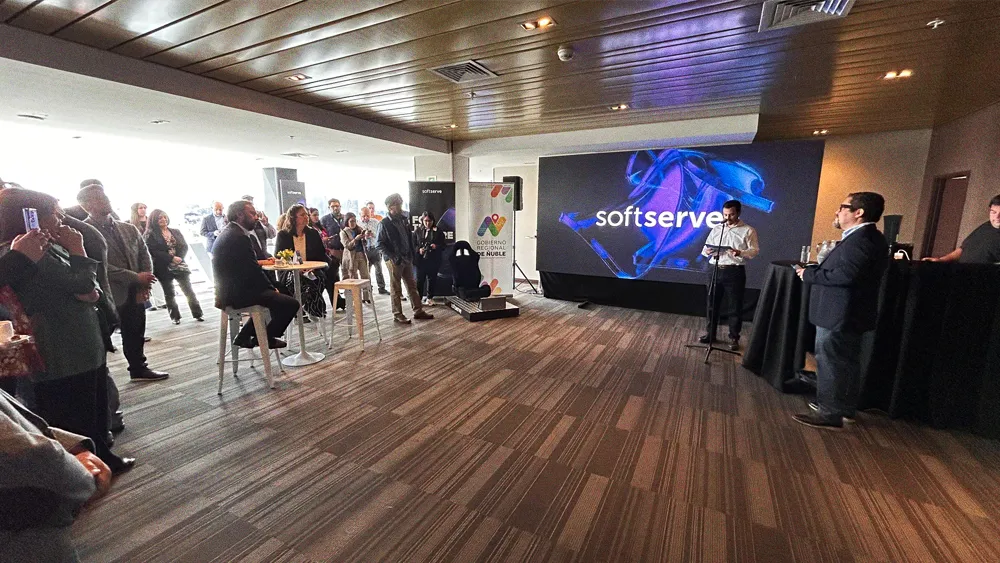‘Shadow AI’ is the hidden force threatening workplace security in search of productivity

Key Points
Ivanti’s 2025 Technology at Work Report reveals a third of employees use AI tools secretly, highlighting a “shadow AI” trend.
Unauthorized AI use poses security risks, including potential data breaches and non-compliance with regulations like GDPR.
Employees cite fear of job loss and increased workloads as reasons for secret AI use, complicating workplace dynamics.
Employees are using AI tools without their bosses' knowledge to boost productivity. It is crucial for employers to assume this is happening... and to assess the use of AI to ensure it complies with their security and governance standards.

Brooke Johnson
Chief Legal Counsel and SVP of HR and Security
Ivanti
AI is reshaping how work gets done across every department in every industry, yet a significant slice of this transformation is happening in the shadows, creating an urgent dilemma for businesses. As employees increasingly turn to AI for a productivity edge, companies are grappling with a burgeoning “Shadow AI” phenomenon that carries both promise and perils.
The clandestine adoption of AI is a key finding in the 2025 Technology at Work Report: Reshaping Flexible Work by enterprise workplace security company Ivanti, which surveyed over 6,000 office workers and 1,200 IT professionals.
A widespread secret: The Ivanti report reveals that nearly a third (32%) of employees who use Generative AI tools at work admit they’re keeping it a secret from their employer. This isn’t an isolated finding; other industry data points to a broad embrace of unauthorized AI. For instance, a 2023 Gartner survey indicated 67% of employees utilize AI or machine learning solutions without explicit organizational approval, and research from Software AG found 75% of knowledge workers already use AI, with many unwilling to stop even if instructed.
Motivations unveiled: Employees harbor various reasons for this secrecy. The Ivanti study found some use AI discreetly because they like the “secret advantage”, while others worry their job may be cut if their AI use is known. Others experience AI-fueled imposter syndrome, with one employee saying, “I don’t want people to question my ability”.
The security gamble: While employees seek efficiency, their unmonitored use of AI tools, particularly public platforms like ChatGPT or Google Gemini, opens a Pandora’s box of cybersecurity risks. “Employees are using AI tools without their bosses’ knowledge to boost productivity,” Johnson says, in a press release discussing the Ivanti study’s finding. “It is crucial for employers to assume this is happening… and to assess the use of AI to ensure it complies with their security and governance standards. Employees adopting this technology without proper guidelines or approval could be fueling threat actors, violating company contracts, and risking valuable company IP.”
Charting a responsible path: The challenge necessitates a proactive approach from businesses. “Ivanti’s research shows that employees continue to want greater autonomy over their work lives and AI solutions that help them do their best work,” Johnson explains, “To address this, organizations should consider building a sustainable AI governance model, prioritizing transparency and tackling the complex challenge of AI-fueled imposter syndrome through reinvention.” That involves implementing clear policies, providing regular training on security and ethical implications, and fostering open dialogue.
Broader workplace dynamics: The rise of secret AI usage doesn’t occur in a vacuum. Ivanti’s report also highlights ongoing tensions around RTO mandates, with most IT professionals feeling pressure to return despite viewing flexible work as high-value. This push for RTO, perceived by employees as driven by desires for “improved productivity” or “more control,” may inadvertently fuel the quest for clandestine efficiency tools as workers seek to maintain autonomy. Ultimately, navigating the era of AI in the workplace requires a new pact between employers and employees, and more checks behind the scenes to ensure compliance.
Employers who fail to approach innovation with empathy and provide employees with autonomy run the risk of losing valuable staff and negatively impacting employee productivity.

Brooke Johnson
Chief Legal Counsel and SVP of HR and Security
Ivanti
Employers who fail to approach innovation with empathy and provide employees with autonomy run the risk of losing valuable staff and negatively impacting employee productivity.

Brooke Johnson
Chief Legal Counsel and SVP of HR and Security
Ivanti
Related articles
TL;DR
Ivanti’s 2025 Technology at Work Report reveals a third of employees use AI tools secretly, highlighting a “shadow AI” trend.
Unauthorized AI use poses security risks, including potential data breaches and non-compliance with regulations like GDPR.
Employees cite fear of job loss and increased workloads as reasons for secret AI use, complicating workplace dynamics.

Brooke Johnson
Ivanti
Chief Legal Counsel and SVP of HR and Security

Chief Legal Counsel and SVP of HR and Security
AI is reshaping how work gets done across every department in every industry, yet a significant slice of this transformation is happening in the shadows, creating an urgent dilemma for businesses. As employees increasingly turn to AI for a productivity edge, companies are grappling with a burgeoning “Shadow AI” phenomenon that carries both promise and perils.
The clandestine adoption of AI is a key finding in the 2025 Technology at Work Report: Reshaping Flexible Work by enterprise workplace security company Ivanti, which surveyed over 6,000 office workers and 1,200 IT professionals.
A widespread secret: The Ivanti report reveals that nearly a third (32%) of employees who use Generative AI tools at work admit they’re keeping it a secret from their employer. This isn’t an isolated finding; other industry data points to a broad embrace of unauthorized AI. For instance, a 2023 Gartner survey indicated 67% of employees utilize AI or machine learning solutions without explicit organizational approval, and research from Software AG found 75% of knowledge workers already use AI, with many unwilling to stop even if instructed.
Motivations unveiled: Employees harbor various reasons for this secrecy. The Ivanti study found some use AI discreetly because they like the “secret advantage”, while others worry their job may be cut if their AI use is known. Others experience AI-fueled imposter syndrome, with one employee saying, “I don’t want people to question my ability”.
The security gamble: While employees seek efficiency, their unmonitored use of AI tools, particularly public platforms like ChatGPT or Google Gemini, opens a Pandora’s box of cybersecurity risks. “Employees are using AI tools without their bosses’ knowledge to boost productivity,” Johnson says, in a press release discussing the Ivanti study’s finding. “It is crucial for employers to assume this is happening… and to assess the use of AI to ensure it complies with their security and governance standards. Employees adopting this technology without proper guidelines or approval could be fueling threat actors, violating company contracts, and risking valuable company IP.”

Brooke Johnson
Ivanti
Chief Legal Counsel and SVP of HR and Security

Chief Legal Counsel and SVP of HR and Security
Charting a responsible path: The challenge necessitates a proactive approach from businesses. “Ivanti’s research shows that employees continue to want greater autonomy over their work lives and AI solutions that help them do their best work,” Johnson explains, “To address this, organizations should consider building a sustainable AI governance model, prioritizing transparency and tackling the complex challenge of AI-fueled imposter syndrome through reinvention.” That involves implementing clear policies, providing regular training on security and ethical implications, and fostering open dialogue.
Broader workplace dynamics: The rise of secret AI usage doesn’t occur in a vacuum. Ivanti’s report also highlights ongoing tensions around RTO mandates, with most IT professionals feeling pressure to return despite viewing flexible work as high-value. This push for RTO, perceived by employees as driven by desires for “improved productivity” or “more control,” may inadvertently fuel the quest for clandestine efficiency tools as workers seek to maintain autonomy. Ultimately, navigating the era of AI in the workplace requires a new pact between employers and employees, and more checks behind the scenes to ensure compliance.




